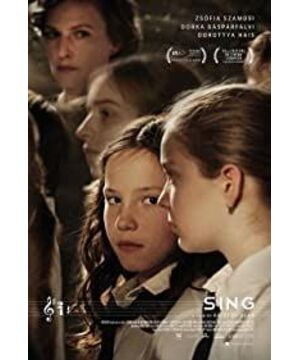The enlightenment of open courses in China can basically be classified into two classes, one is the happiness class of Harvard University, and the other is "Justice: How to Do It?" ". The latter I watched the first lesson several times, and the cut was very vivid, but I couldn't keep up with the philosophy later on. Fortunately, the book came out later, and I just started reading it recently.
At the beginning of the book, the author also uses a series of examples to discuss the struggle between virtue and justice. One of the questions is:
Do colleges that divide places for different races bring more general justice, or harm the rights of those who work hard?
Putting this question into the country, is it fair that top domestic universities like Peking University reserve places for remote areas?
This problem is very big, and there have been many articles before (such as the previous discussion on the difficulty of raising a child from a poor family ), but I don't have the ability to expand it, so I won't mention it. Nevertheless, political correctness, the Matthew effect, the law of the jungle, these words will always appear in the discussion of any social issue, and no one can avoid it.
Judging from this film, the ending is obviously ideal: a strong man who believes in justice joins forces with a weak man who is no longer silent, and defeats the shackles that divide them. Obviously, they will not go to the international stage in Switzerland as the teacher planned, but for this stage, such an ending is already a happy ending.
Let's go back and think:
1. We have to admit that the differences in musical talent between individuals exist and are huge
2. The talent possessed by man is not equal to the subjective will of man
After confirming these two premises, the contradiction of this play can be established. The teacher's point of view is certainly valid: instead of letting those who are not good enough cause everyone to miss opportunities, why not let the good people lead everyone to get better rights?
Aside from the big topics of justice, it's still on the specific event of the choir.
1. What is the admission mechanism for the choir? Are there any interview sessions such as auditions? From the words of the little girl Fia and the teacher, we can speculate that it is obviously not the case: this is a group formed out of interest, and you can join as long as you want to participate.
2. So what kind of competition does the choir participate in? The essence of the competition is, of course, the survival of the fittest, but is the scope of the contestants a mandatory requirement that “all members participate”? I'm sure no sane organizer would make such a request. Of course, the choir itself has a minimum number of participants, which we cannot ignore (because of course it is easier to maintain a high level when there are fewer people).
3. Does the teacher's idea of "letting everyone look good on the international stage" itself violate the intent of the competition? I believe that the organizers have no interest in paying for the trip to Switzerland for "people who join because of their interest but have average performance", otherwise it would be better to let all participating teams go to Switzerland.
4. Based on the above reasoning, is there any legitimacy for teachers to use group interests to oppress individual wishes?
5. Furthermore, although we admit that there is a lack of talent, but at the same time we must also recognize that hard work itself can make up a considerable part of the gap. But in the film, do we see any attempt by the teacher in this regard? Is there a vocal range test for each child, looking for the part that each of them is best at, and then dividing the vocals to sing? Is there targeted training for the weak points of the deficient? Are there other ways to get interested, untalented people involved? (For example, the usual training and performances unrelated to the competition are dispatched by all members, and when participating in the competition, the really outstanding people are selected to come forward)
6. So, who is slowing down the so-called "collective"? Is it the part of the participants who originally had poor talent, or the teachers who want to get something for nothing?
In the animation "Blow it!" In "Yofeng", the instructors train with the goal of "participating in competitions" according to the will of group voting, and the method of selecting trumpet soloists has also changed from the usual "seniors first" to "selected admissions". Rena, a junior high school student whose level is far superior to others, won the opportunity by teaching and competing with a senior who has suffered a lot of grievances. Many people expressed dissatisfaction with this, so the teacher arranged a comparison between the two again, and Reina won the approval of everyone again.
No one wants to be an ostrich, it's not fair to deny the world. However, as a living community, human beings still have a lot to do to fill the gap between the starting point and the low point as much as possible. And obviously, this is going to be the hard way. But after "yes it is", ask one more "what could we do", this is a better way to solve the problem.
Yes, the ending like this in the film is not good enough for those who are gifted, they lose the opportunity that belonged to them. However, at least the children have done one thing, that is, after admitting that the problem exists, try to do something to change the problem, instead of treating the problem itself as a setting that can never be overturned.
Maybe I'm naive, but this is the future of mankind that I want to believe.
View more about Sing reviews







